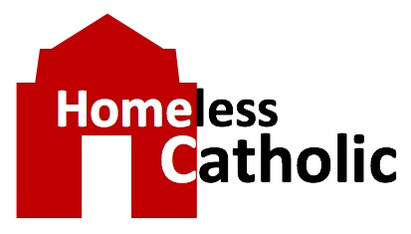What are the limits of our belief?
What Jesus offered soon led many to leave.
The big exodus came at the end of John’s account when Jesus spoke of the necessity to eat his flesh and drink his blood if you wanted eternal life. Yet we find similar positions taken up today. So, where, exactly, is the limit of belief?
Image by Heiko Dörr
Reflection - Real
By Steve Hall
https://bible.usccb.org/bible/readings/050622.cfm
Acts 9:1-20
John 6:52-59
Today’s Gospel reading is part of an extended teaching by Jesus on himself as the Bread of Life. “Unless you eat the Flesh of the Son of Man and drink his Blood, you do not have life within you.” In the very next verse of John’s text we hear that “Many of his disciples, when they heard it, said, ‘This is a hard saying; who can listen to it?’” (John 6:60)
It was hard to accept then just as it is for many today. Current US statistics indicate that only about a fourth of the Catholic population believes in the real presence of Christ in the Eucharist. Yet, this is what Jesus insisted on repeatedly in this portion of John’s gospel.
The exchange starts off simple enough. With Moses came the manna in the desert. With Jesus there came the true bread from heaven. “The Jews then murmured at him, because he said, ‘I am the bread which came down from heaven.’” But Jesus insists, “I am the bread of life.”
The conversation moves on. Unlike the manna in the desert which brought an extension of physical life for those who fed on it, Jesus presents himself as the living bread, come down from heaven, which brings eternal life to those who eat it. “I am the living bread which came down from heaven; if any one eats of this bread, he will live for ever; and the bread which I shall give for the life of the world is my flesh." It is then that we hear the objection voiced in todays Scripture: "How can this man give us his flesh to eat?"
The flow of the conversation makes me wonder. What are the limits of our belief? Clearly, those in this discussion with Jesus were having trouble digesting his teaching even as that teaching progressed. It all started because they had been among those he had fed with a few loaves and fish; and they came seeking, once again, ordinary bread. But what Jesus offered soon led many to leave. Was it when he claimed to be the bread from heaven as Wisdom was seen in the Old Testament to be bread sent down from heaven? Was it when he claimed to be the true bread given by the Father? Or maybe it was when he tried to tell them: "I am the bread of life; he who comes to me shall not hunger, and he who believes in me shall never thirst.” The text offers these and other possibilities; and different people were repelled at different times and with different reasons.
The big exodus came at the end of John’s account when Jesus spoke of the necessity to eat his flesh and drink his blood if you wanted eternal life. Yet we find similar positions taken up today. So, where, exactly, is the limit of belief?
Although there are those who claim to be agnostics or atheists, it appears that most people have little trouble in believing in a god, a higher power, a creator, a first cause or something similar. The numbers diminish, however, when we count those who believe in the interaction between God and man; and they decline still further when we list specific works which some attribute to God. Christianity has its own set of spiritual markers, many of which are quite extraordinary, beginning with a burning bush and plagues in Egypt and ending with a resurrection and ascension.
When I consider these events, however, it would seem that I can comfortably stand afar and assent without involvement. These things did not happen to me; they happened to someone else. I was not there as a witness when these things happened; other people were. My experience does not include the visual spectacle, the singing of angels, the fear and astonishment of the inexplicable; my life is simple and ordinary.
When I consider the Eucharist the immediacy of the moment confronts me. This does involve me. I have been chosen to attend the meal. I have been invited to take and eat. I have been called to the table of the Lord. I am here and I must decide what I shall eat. Do I take just a small wafer, after which I shall necessarily go and have breakfast.? Or do I take what was promised — the body and blood of Jesus, the Christ — which will fill me to everlasting life?
Peter’s response when Jesus asks if they too will leave is worth noting. He said: "Lord, to whom shall we go? You have the words of eternal life.” Peter does not directly refer back to the Lord’s teaching. He does not ask for an explanation of what Jesus meant when he spoke of eating his flesh and drinking his blood. There is no discussion about what is symbol and what is real. Peter’s faith is in Jesus himself and he knows that what Jesus says is true. “You have the words of eternal life.”
My life is simple and ordinary but I must decide what I will take and eat. Only the Eucharist demands such personal involvement; and, if I believe in His real, genuine, authentic presence in the Eucharist it is because He himself told me it was true.

